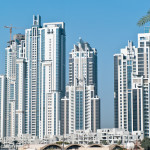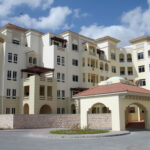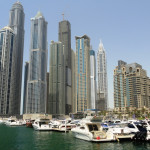Banks in Dubai
Opening and operating a bank account in Dubai, or for that matter, any other Emirate of the United Arab Emirates is not really all that different from opening a bank account in the UK, the USA or any other country that you, the new expatriate resident of Dubai, come from. There are certain things that all banks want to know about you; they will want to see a few documents relating to you and your occupation. So far, pretty standard stuff, no matter which country you are in. Then there are a couple of extra documents that you will need that are UAE specific, but we’ll deal with those a little further in. First, let’s talk about the banks that you will find in Dubai.
The Banks
“Some that you’ll recognize, some that you’ve hardly even heard of”…or so the song goes. The world’s biggest and best-known banking corporations are well represented in the UAE. Citibank, HSBC, Standard Chartered, Barclays – all have a presence here and offer good, clearly set out websites (in English) informing you of their services and the types of accounts they offer, so you have a good basis on which to make your choice of bank.
But there’s no need to be afraid of, or overlook the obviously local banks – the ones with names you almost certainly will not be familiar with. These are all very modern, customer friendly and well-regulated institutions – The UAE’s Central Bank keeps a close eye on all financial dealings and has strict codes of compliance that all banks – international and local alike – are required to adhere to. So alongside the names listed above, you’ll also see plenty of publicity around Dubai for names like Mashreqbank, Emirates NBD, Dubai Islamic Bank, The Commercial Bank of Dubai and many others, often associated with individual Emirates like Abu Dhabi, Sharjah and Ras Al Khaimah.
In the end your choice may well be decided by something as simple as your company suggesting a particular bank, as they do all their banking through this bank and there are some extra incentives for you to choose this bank as your own. Or it could be that one particular bank has an ATM at a location that is very convenient for you.
So what do I have to do and what do I need?
Retail personal banking is very competitive in Dubai and throughout the UAE in general. Most, if not all, bank websites offer you the chance to apply for an account online. This usually means supplying your name, the type of account you are most interested in, the likely average monthly balance you will be keeping and a phone number. A representative from the bank should call you to discuss your needs quite soon after lodging your online application and this is a good time to ask any extra questions you might have regarding such things as fees, interest rates, credit cards and international transfers, for example.
Assuming that the telephone call has answered your questions and allayed your fears, you will have to go into a branch of the bank, armed with a number of documents. The bank representative will probably have told you what these are: the websites don’t actually list them in any obvious place. If he or she doesn’t mention them, make sure you ask. They will almost certainly include some, if not all of the following: a copy of the pages from your passport showing your personal details and your residence visa. In the “old days”, this meant a wait of some weeks while your residence visa was being processed before there was any point in approaching a bank, but things are much quicker all round now. As well as the passport copy, you will need a Letter of No Objection (also known as a No Objection Certificate, or NOC) from your employer. Your company will have someone in HR who will do one of these for you and stamp it. They can be required for a number of things, like spouses who are on your Residency Visa taking paid employment or getting a loan to buy a car. The NOC should also state your monthly salary. Some banks are satisfied with a salary certificate from the HR department where you work. Also, I have found that they do not want all the documents listed on their fact sheets, if they have such a thing. So personal contact is needed.
Passport copy and salary certificate are the definite requirements. There are some further “maybes”. These include a copy of the tenancy agreement for your apartment or villa and possibly passport-sized photographs – probably 2 – but do ask the bank’s representative in the preliminary phone call what the document requirements are. There is nothing quite as infuriating for the newcomer to Dubai, after struggling through strange roads and driving behavior, temperatures ranging from 40 – 50° C and a long wait to be seen, only to find that the business cannot proceed because you have not brought a key document with you.
Bank accounts – the goodies
So you have successfully opened an account with the bank of your choice in Dubai. What now? Well, in a fairly short space of time, you’ll receive an ATM/Debit card usually delivered to you by courier. This, of course, will allow you to do all an ATM/Debit card should. You may also be offered a Credit Card by the bank. There’s a fair amount of competition for your credit card business, so it’s perfectly possible to have an account with one bank and a credit card from another, if their enticements are better. Usually, it’s more convenient to have both with the same bank, because when monthly payment time comes around, you can simply transfer your payment from your current or savings account to the credit card account.
The bank will probably want you to have a chequebook as well. If you have to find and pay for your own accommodation, then the annual rent is most commonly paid by giving the owner or real estate agent four post-dated cheques, each for 25% of the annual rent. These will be presented at 3 monthly intervals and it is up to you to make sure the funds are in your account. A bounced cheque is regarded as serious fraud in the UAE, so don’t be complacent about this one!
Your bank will probably also be your first port of call for a car loan; for travel and sometimes health insurance, too. You can also pay your monthly utility bills (electricity, water and telephone), top up your mobile phone account and pay Dubai’s road-user toll charges (known as Salik) via online banking. These are all great time and hassle savers.
Most of the banks also have Ladies’ Sections. No matter what your first reaction to this, I think 50% of my readers will think this is a fine and innovative initiative after a few visits and enjoying the preferential treatment it allows.







